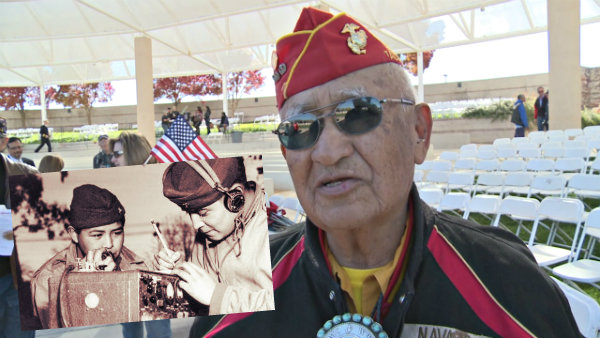Albequerque, New Mexico – A Navajo veteran talks about his experience as one of the real ‘windtalkers’ of the Second World War — as a Navajo code talker.
Thomas Begay is just one of the estimated 170,699 vets residing in New Mexico. And he is one of the few Navajos who were recruited during the Second World War to be a Navajo code talker. They communicated orders through the radio using their own language and, according to Begay, formulating other codes using their own native tongue.
Thomas Begay was able to serve both in the Second World War and in the Korean war as a Navajo code talker. He even said that he was able to serve in the Battle of Iwo Jima for 38 days, from February 17 to March 27, 1945. Serving in the 5th Division of the US Marines, he, along with his unit, was the one responsible for making and relaying encrypted codes. These secret messages were very important as they monitored the movements of the troops as well as helped defeat the enemies.
The former Navajo code talker recounted how he and his team formulated a code using the names of things in the Navajo language. For example, they used the names of various birds to pertain to the different planes of the Second World War.
Begay even added that the Navajo code they created was never decoded by anyone, that it remained unbroken throughout WWII. Even other Navajos were never able to decipher it. In Begay’s counting, his team of Navajo code talkers were able to send out as many as 800 coded messages and not one of them had mistakes. They were the ones to provide communications for the US Marine Corps stationed in the South Pacific.
Former Navajo code talker Thomas Begay’s legacy in the military service continued on with his sone, Ronald Begay, who followed in his footsteps as a soldier. The younger Begay served as a US Airborne Ranger.
Both father and son were present during the annual veterans ceremony held at the New Mexico Veterans’ memorial Park on Veterans Day, November 11. For them, the event is a solemn commemoration of those, who like them, served to ensure the freedom of the country.
